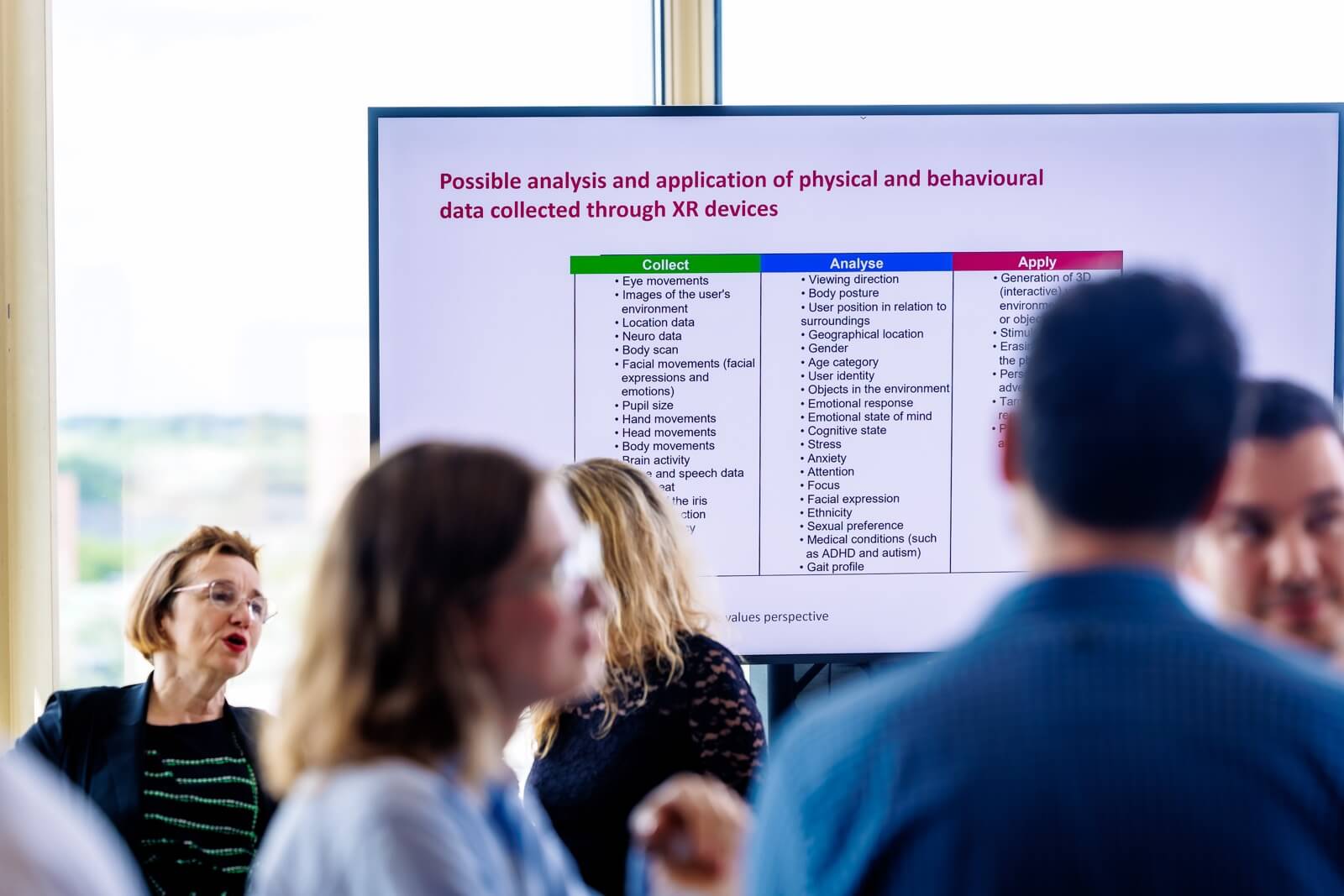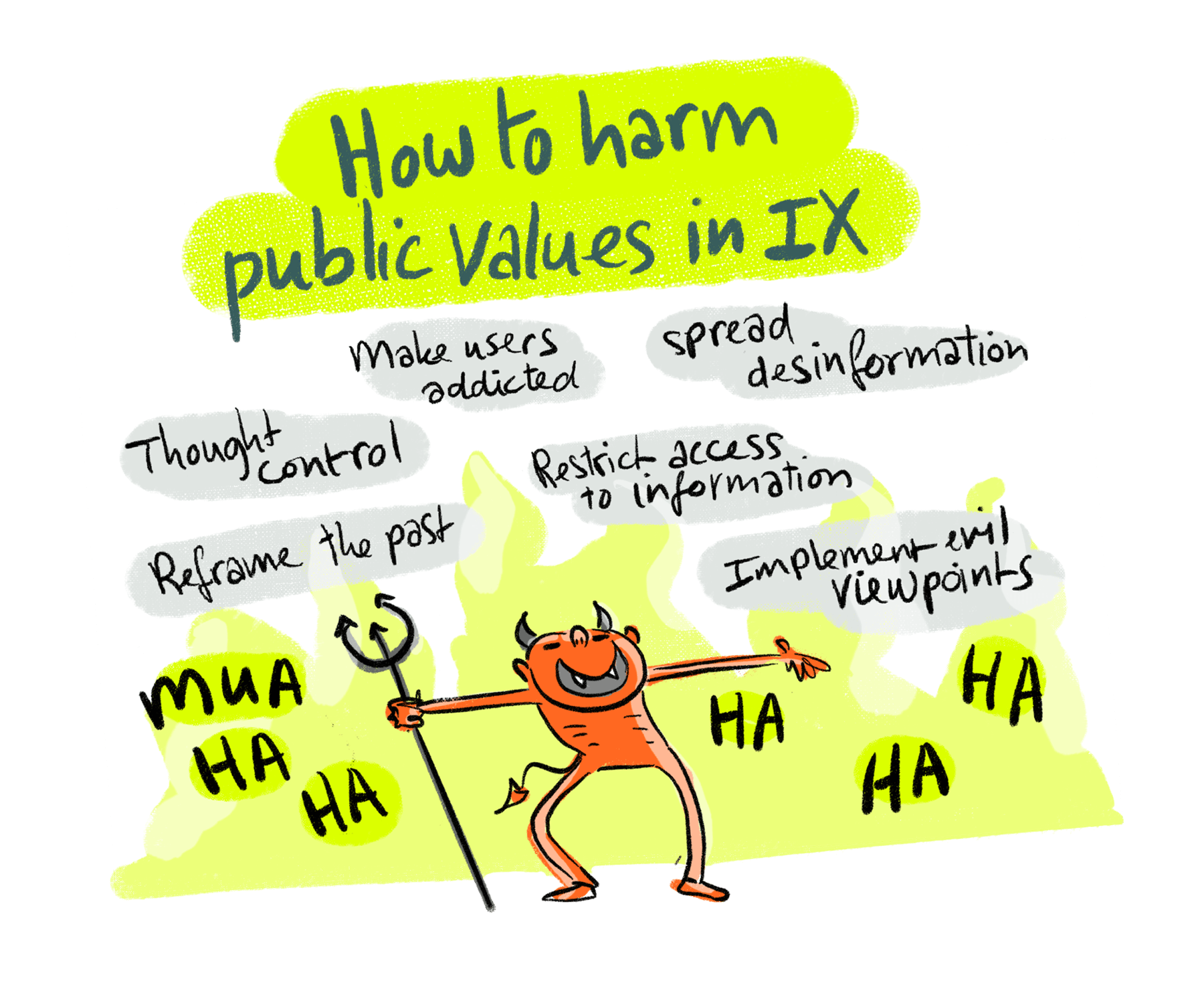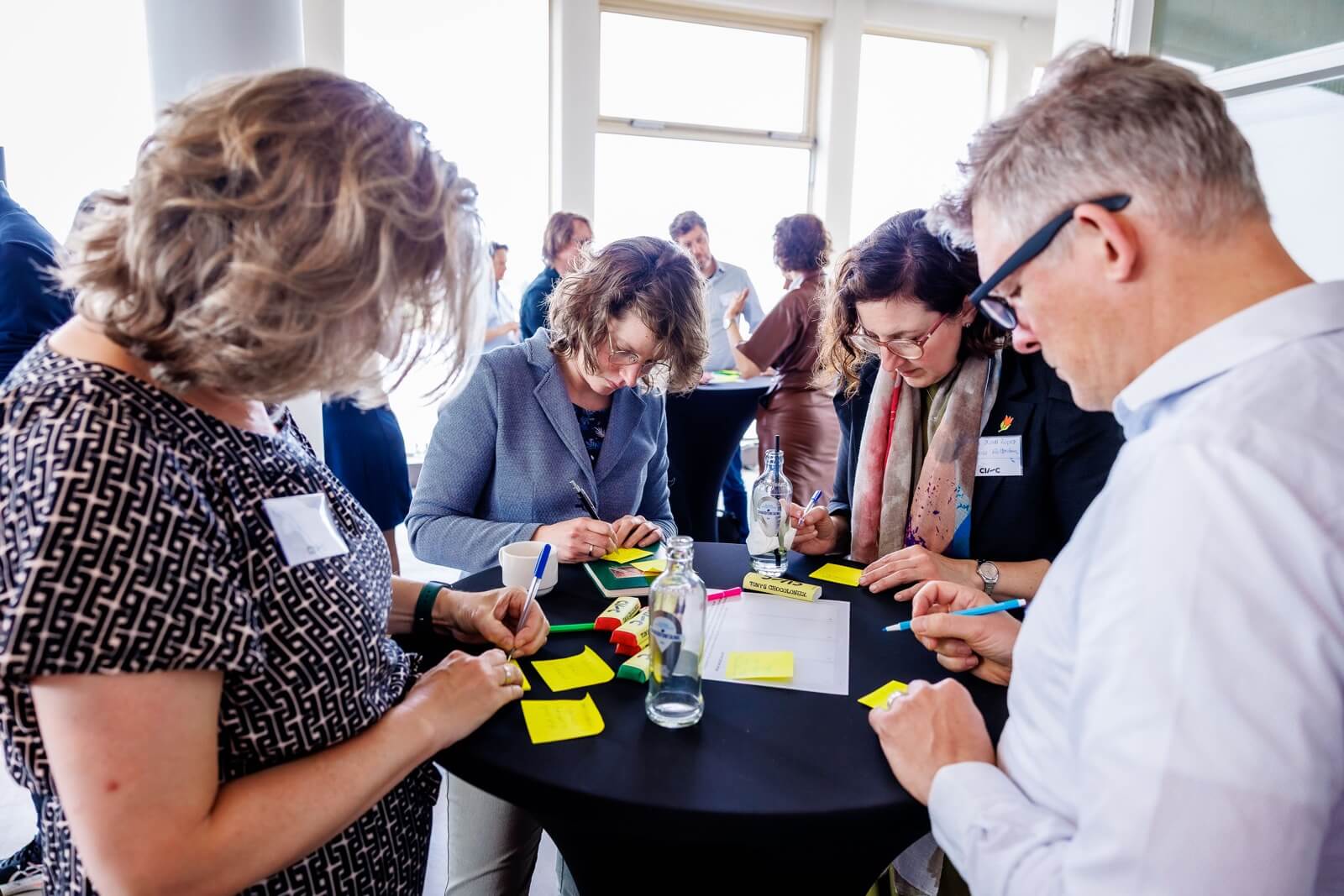1C: Public Values and Risks in XR Technology



From a 'therapist from hell' who makes you question your own senses and memories, to authoritarian state actors who enforce ideological conformity by manipulating AR overlays wherever you go: the potential of immersive technologies to usher in various dystopian futures is seemingly unlimited. The participants of the 'Public Values in IX' at least had little difficulty dreaming up scenarios that sounded like episode summaries of an upcoming season of the science-fiction television series 'Black Mirror'.

Illustration by Suus van den Akker
It was exactly the point of this workshop, moderated by Monique van Dusseldorp and introduced by Mariëtte van Huijstee, research coordinator at the Rathenau Institute. Rather than resigning ourselves to the inevitability of such technologies to be predominantly used for nefarious purposes, the session aimed to underscore the importance of ensuring XR technologies are developed and implemented in alignment with public values. Van Huijstee outlined various 'societal risks' identified by her research team at the Rathenau Institute, related to the interconnected domains of privacy, democracy, security, sustainability, self-determination, health, and the cluster of 'participation, inclusiveness and non-discrimination'. Although immersive technologies are tied to the general trend of digitisation (with all of its privacy and misinformation risks), they also introduce specific new threat vectors and vulnerabilities. Not only are immersive technologies capable of influencing one's experience of reality to a greater extent than previously possible, they also introduce a whole new array of sensors and data collection methods that could be used to harvest private information.
The introduction provided more than enough inspiration for the workshop participants, who presented their ideas at the end of the session. Ideas ranged from thought control interventions to apps designed to feed various addictions; some entailed programs to boost societal fragmentation by maintaining a system of disconnected echo chambers, fed by misinformation and conspiracy theories, others focused on the idea of enforcing ideological conformity by means of propaganda and censorship.

It was an eerie collection of dystopian hellscapes, not in the least because the scenarios presented were not actually all that far-fetched. How might nefarious actors get access to the systems involved, Van Dusseldorp asked? One need only look at the current state of technology to answer that question: by hacking, owning, litigating or legislating them – take your pick. As Dusseldorp noted, wryly: 'You know, this is all already happening.'